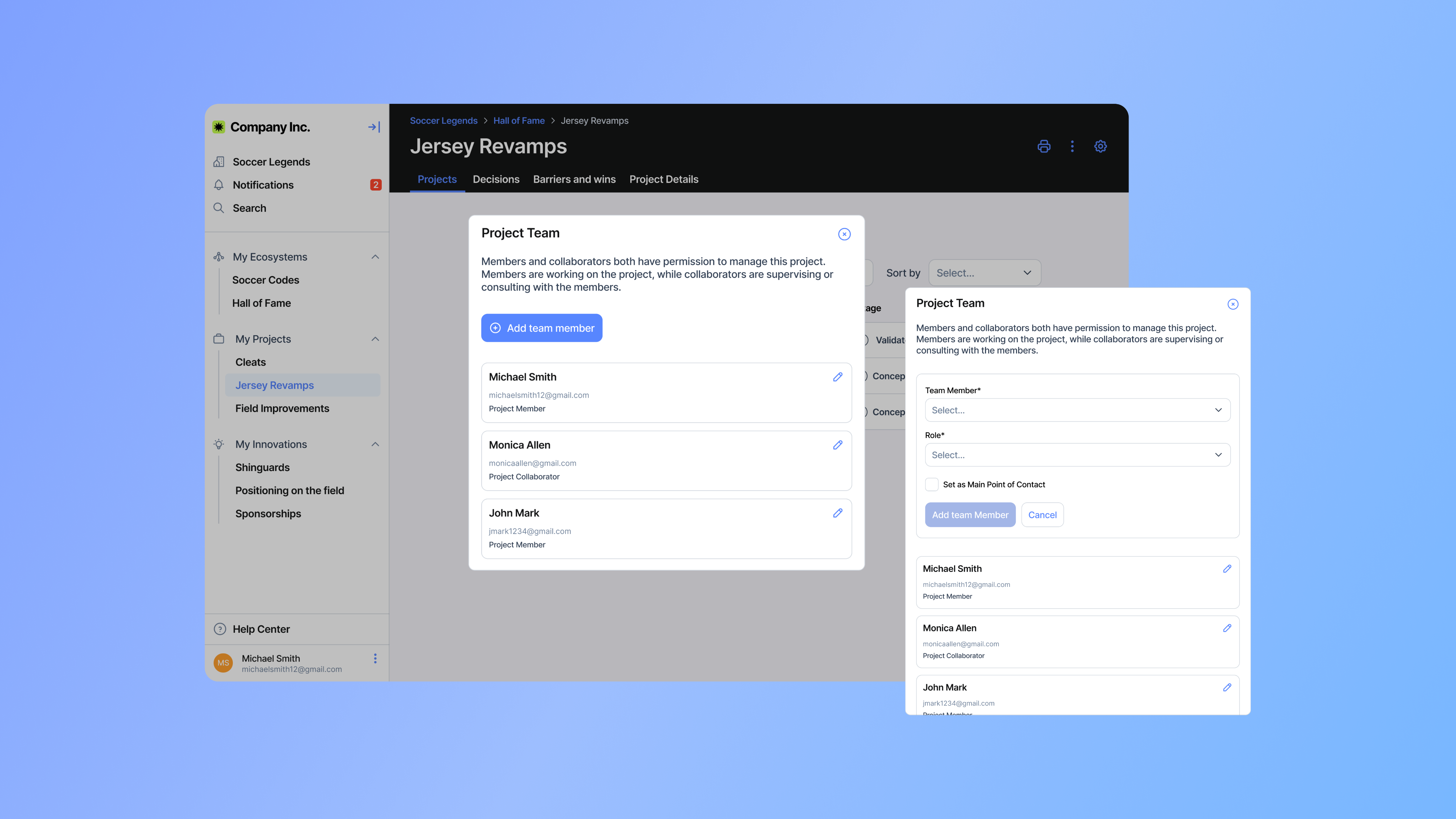Overview
Role labels is a functionality feature that allows users to apply a label to showcase which responsibility they are playing on the project.
Role
Product Designer
Timeline
2 Week Sprint
TEAM
2 Engineers
2 Designers
1 Stakeholder
1 Stakeholder
SKILLS
Researching
Collaborating
Cross Function
1 Stakeholder
THE PROBLEM
Who the heck is playing what!?
Entering this project, the problem was very clear. No one knows who’s playing what role on a project, leading to confusion among users. This led to low amounts of collaboration amongst the users on their projects, which then led to slow project finishes, outcomes, or no funding to push forward.
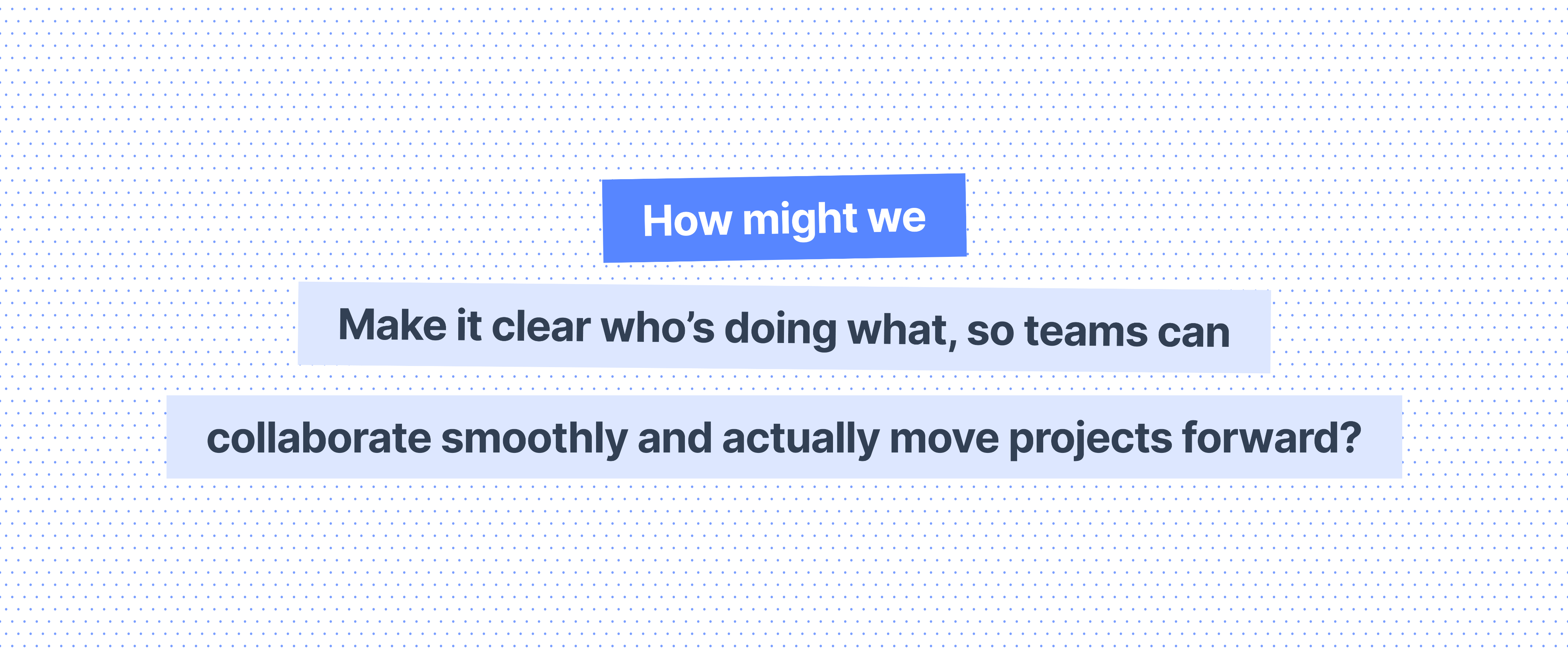
Solution
The goal is clear
- Clearly define who is responsible for what in each project.
- Make it obvious who the project lead is.
- Encourage more collaboration and communication within the app.
- Improve project momentum and speed up completion.
User Research
Drinking from the firehouse
To get clarity, I spoke with a stakeholder who had deep experience in this area and learned how clear role definition directly improves collaboration and projects in the DoD
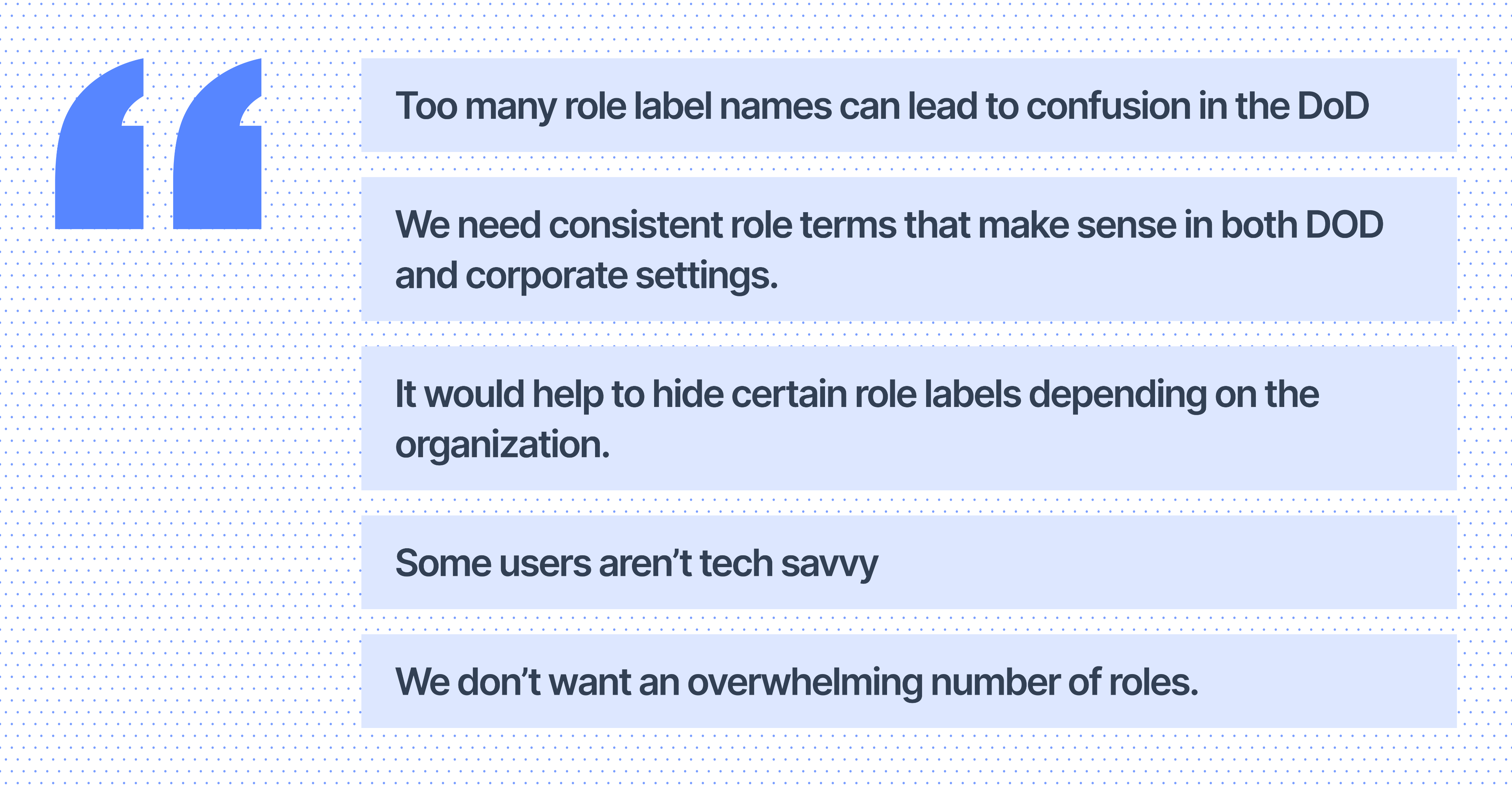
Biggest Constraint
How will we go about select the role labels. Balancing DoD & Corporate termanology
Aha moment
After carefully analyzing all the information. I knew that free text would not be the route to go. This removed what could’ve been more of a confusion towards users with many differ role labels.
This allowed us to better the role label to only 4 options.
- Resourcing Lead
- Project Collaborator
- Project Member
- Decision Lead
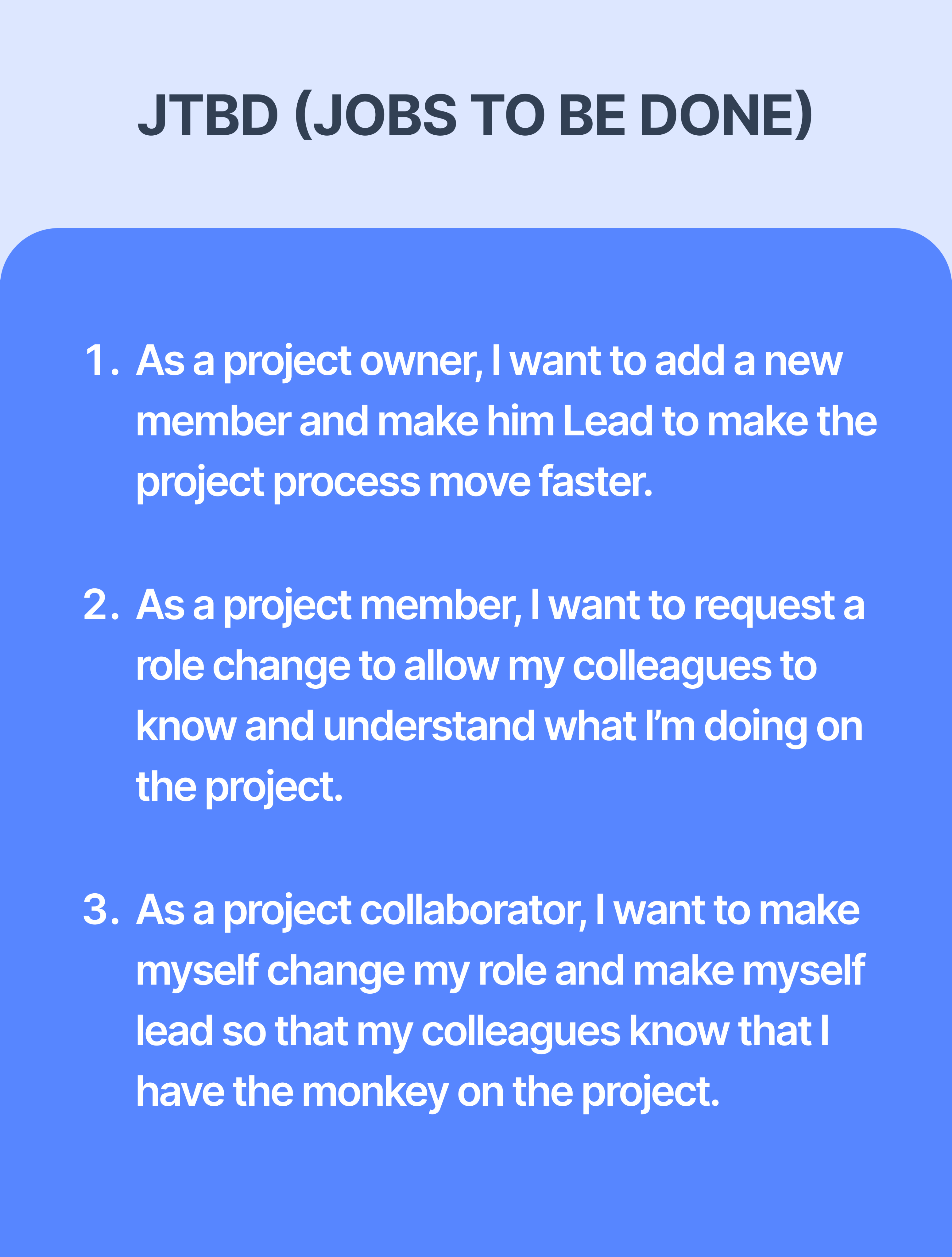
Decisions need to be made.
After obtaining helpful information from the Stakeholder, I began to brain-dump and organize how and what would be best for MVP. I knew the plan was to show what role someone was taking on the project.
I began by writing down crucial JTBDs to help grasp and understand the journey and desires of the user. Not only did it clear the understanding of the flow a user might take, but opened my eyes to the different ways (3 to be exact) they might achieve the end result.
Final Designs
As a project owner, I want to add a new member and make him Lead to make the project process move faster.
As a project collaborator, I want to make myself change my role and make myself lead so that my colleagues know that I have the monkey on the project.
As a project owner, I want to add a new member and make him Lead to make the project process move faster.
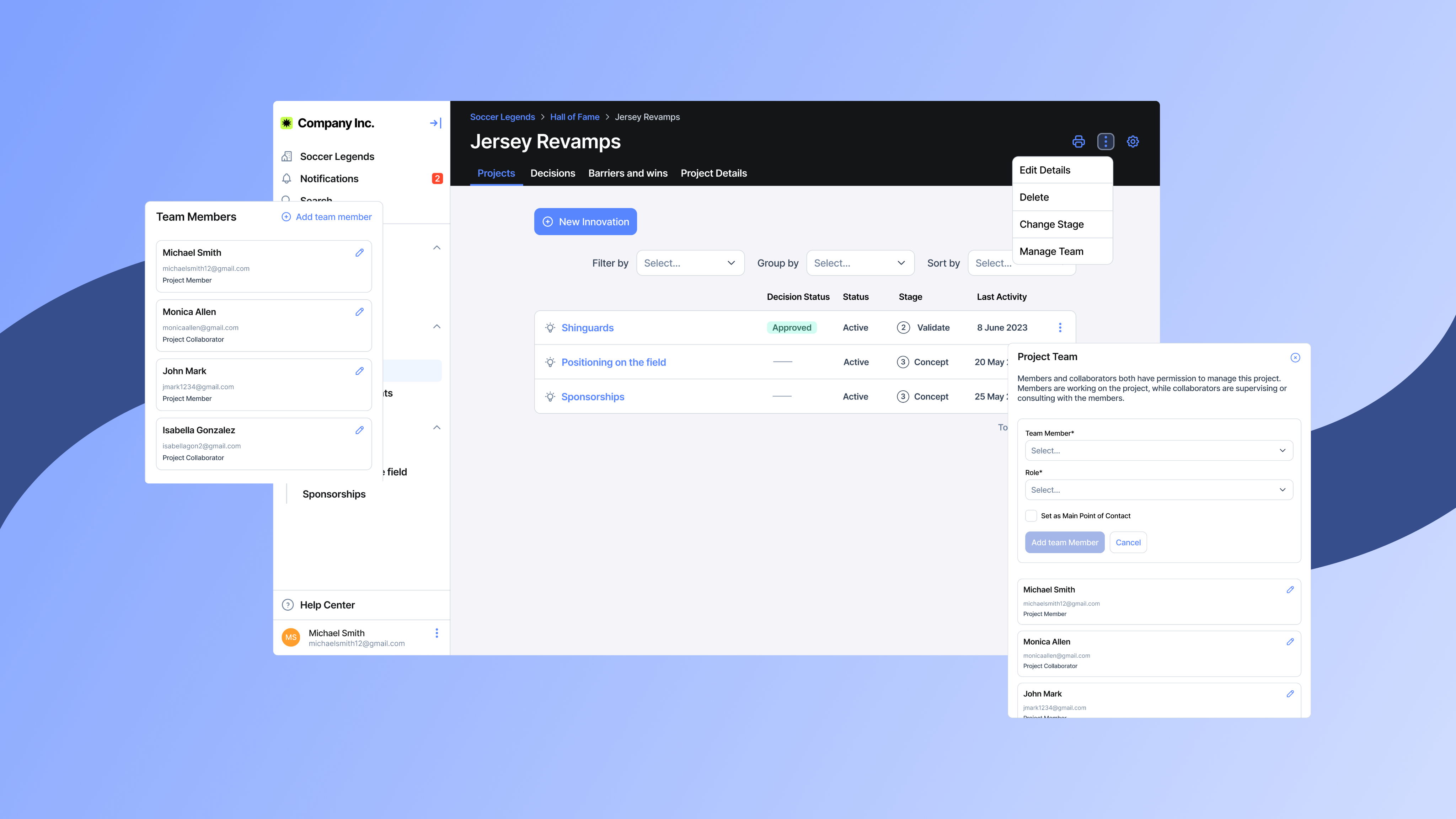
OUTCOME
We noticed a signifance
Entering this project, the problem was very clear. No one knows who’s playing what role on a project, leading to confusion among users. This led to low amounts of collaboration amongst the users on their projects, which then led to slow project finishes, outcomes, or no funding to push forward.
Overview
Role labels is a functionality feature that allows users to apply a label to showcase which responsibility they are playing on the project.
Role
Product Designer
Timeline
2 Week Sprint
TEAM
2 Engineers
2 Designers
1 Stakeholder
1 Stakeholder
SKILLS
Researching
Collaborating
Cross Function
1 Stakeholder
THE PROBLEM
Who the heck is playing what!?
Entering this project, the problem was very clear. No one knows who’s playing what role on a project, leading to confusion among users. This led to low amounts of collaboration amongst the users on their projects, which then led to slow project finishes, outcomes, or no funding to push forward.

Solution
The goal is clear
- Clearly define who is responsible for what in each project.
- Make it obvious who the project lead is.
- Encourage more collaboration and communication within the app.
- Improve project momentum and speed up completion.
User Research
Drinking from the firehouse
To get clarity, I spoke with a stakeholder who had deep experience in this area and learned how clear role definition directly improves collaboration and projects in the DoD

Biggest Constraint
How will we go about selecting the role labels. Balancing DoD & Corporate terminology.
Aha moment
After carefully analyzing all the information. I knew that free text would not be the route to go. This removed what could’ve been more of a confusion towards users with many differ role labels.
This allowed us to better the role label to only 4 options.
- Resourcing Lead
- Project Collaborator
- Project Member
- Decision Lead

Decisions need to be made.
After obtaining helpful information from the Stakeholder, I began to brain-dump and organize how and what would be best for MVP. I knew the plan was to show what role someone was taking on the project.
I began by writing down crucial JTBDs to help grasp and understand the journey and desires of the user. Not only did it clear the understanding of the flow a user might take, but opened my eyes to the different ways (3 to be exact) they might achieve the end result.
Final Designs
As a project owner, I want to add a new member and make him Lead to make the project process move faster.
As a project collaborator, I want to make myself change my role and make myself lead so that my colleagues know that I have the monkey on the project.
As a project owner, I want to add a new member and make him Lead to make the project process move faster.

OUTCOME
Innovations are moving. Collaborations are happening!
Entering this project, the problem was very clear. No one knows who’s playing what role on a project, leading to confusion among users. This led to low amounts of collaboration amongst the users on their projects, which then led to slow project finishes, outcomes, or no funding to push forward.
